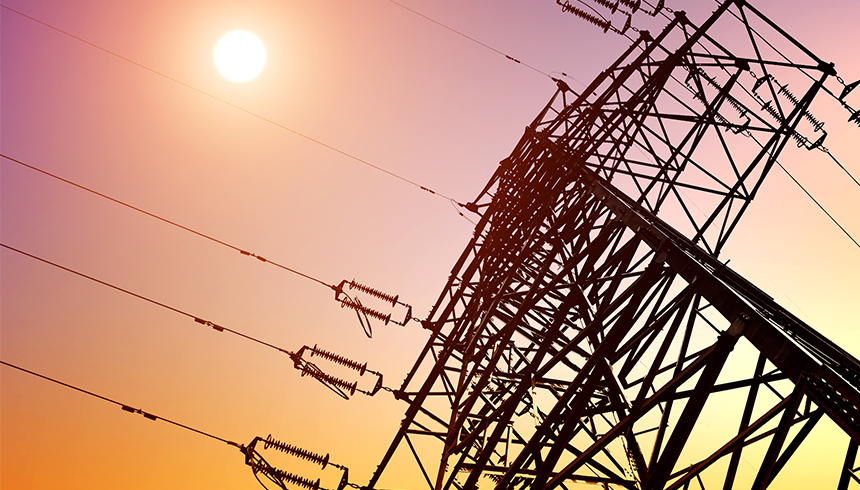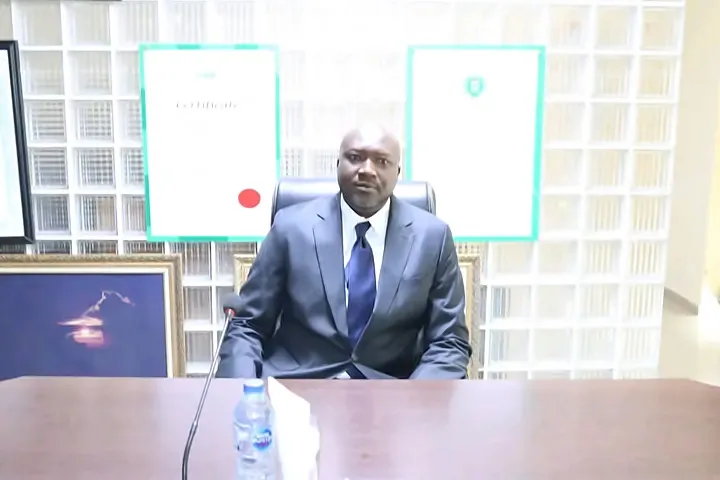General
AfDB 2021 Electricity Regulatory Index Ranks Nigeria 21

By Adedapo Adesanya
Nigeria’s electricity sector emerged as the 21st best regulated across a number of key metrics, according to the African Development Bank’s (AfDB) 2021 Electricity Regulatory Index.
The 2021 Electricity Regulatory Index, an annual report, covered 43 countries, up from 36 in the previous edition, and assessed their impact on the performance of their electricity sectors. The index covered three countries in the North Africa region; 14 in West Africa; 6 in Central Africa; 7 in East Africa; and 13 in the Southern Africa region.
According to the report, Nigeria has an index between 0.600 to 0.799 which indicates a substantial level of regulatory development. This means that many elements of a supportive regulatory framework are established, although there are weaknesses that do not permit the regulator to have a strong capacity, legal and institutional structures.
Meanwhile, the Ugandan electricity sector is the best for the fourth consecutive year while other strong performers include East African neighbours, Kenya and Tanzania, as well as Namibia and Egypt.
Among the 2021 report’s key highlights are that regulatory independence is one sub-indicator where African countries have room to improve: in 93 per cent of sampled countries, governments, and stakeholders exercise influence over regulatory authorities.
In terms of regulatory substance, participating countries scored lowest on the adequacy of their tariff setting and frameworks, as well as licensing frameworks when compared with best practices.
According to the report, the average performance of economic regulation has continued to decline since 2018. A third of countries surveyed indicated they lack methodologies to determine tariffs; another 40 per cent rely on tariff methodologies that do not include key attributes such as automatic tariff adjustment and tariff indexation mechanisms and schedule for major tariff reviews.
Speaking on this, Mr Kevin Kariuki, the AfDB’s Vice President for Power, Energy, Climate and Green Growth said, “The unprecedented participation of so many countries shows the commitment to strengthen the countries’ regulatory environment with a view to improving the performance of the respective electricity sectors”.
On his part, Mr Wale Shonibare, AfDB Director for Energy Financial Solutions, Policy and Regulation, commended the top-performing country.
“Uganda topping the rankings consecutively for four years comes as no surprise to many, as the regulator spends significant time on consultation and analysis, including regulatory impact assessments of key interventions and follow-through to ensure full implementation,” he said.
Outside stakeholders also viewed the report’s results positively with Mr Abel Didier Tella, Director General of the Association of Power Utilities of Africa, saying, “It is interesting that the utilities in most of the top-performing countries in the Electricity Regulatory Index are listed on their national stock exchanges, which requires compliance with transparency in information sharing and good governance practice.”
Since its launch in 2018, the Electricity Regulatory Index has highlighted aspects of electricity regulation that need reform, identified appropriate areas for intervention, and encouraged stakeholders to be proactive in addressing challenges. Since then, the index has been widely adopted by regulators and other stakeholders across the continent as a benchmark for the regulatory environment as well as for ongoing reforms.
General
NIMASA Rallies Stakeholders’ to Develop National Action Plan

By Adedapo Adesanya
The Nigerian Maritime Administration and Safety Agency (NIMASA) has pledged its commitment to provide the regulatory leadership, technical coordination, and stakeholder engagement required to successfully develop and implement a robust National Action Plan on maritime decarbonization in Nigeria.
The Director General of the agency, Mr Dayo Mobereola, made this known during the National Stakeholders’ workshop on the development of a National Maritime Decarbonization Action Plan, further describing the workshop as a critical step in actualising the Federal Government’s blue economy and climate objectives.
Represented by the Executive Director, Operations, Mr Fatai Taiye Adeyemi, the NIMASA DG underscored the significance of the IMO GreenVoyage2050 Project, a technical cooperation initiative /designed to support developing countries in implementing the IMO GHG Strategy.
According to him, the National Action Plan being developed will reflect national realities, leverage existing capacities, address identified gaps, and align with broader economic and environmental priorities of the federal government.
Mr Mobereola stressed that “this transition is not merely about compliance with international obligations, it is about safeguarding our marine environment, protecting public health, strengthening the blue economy, and ensuring that our maritime industry remains competitive and future-ready”, the DG said.
Also speaking at the event was the Technical Manager of the IMO GreenVoyage2050 Project, Ms Astrid Dispert, who highlighted that the overarching objective of the initiative is to advance a coherent and globally aligned regulatory framework to accelerate maritime decarbonization.
She also emphasised that NIMASA plays a pivotal role in driving the project at the national level.
The IMO GreenVoyage2050 Project provides technical expertise and institutional support to assist countries in developing and implementing National Action Plans that promote sustainable shipping practices, encourage investment in clean technologies, and strengthen capacity for long-term emissions reduction.
Through this collaboration, the federal government is advancing deliberate steps towards maritime decarbonization, reinforcing its commitment to global climate goals and ensuring a cleaner, greener, and more sustainable future for the sector.
General
BPP Mandates Digital Submission for MDAs From March 1

By Adedapo Adesanya
The Bureau of Public Procurement (BPP) has directed all Ministries, Departments and Agencies (MDAs) to comply with its digital submission process effective March 1.
The directive was contained in a circular signed by the Director-General of the Bureau, Mr Adebowale Adedokun, noting that the move was part of the bureau’s commitment to digital transformation and paperless governance.
It explained that the transition followed an earlier circular of Aug. 4, 2025, which introduced electronic submission procedures.
According to the bureau, it has successfully moved from physical filings to a dedicated e-mail service for document submissions and is now advancing to a more robust and integrated system.
The circular announced the inauguration of the BPP Digital Submission Portal, a web-based platform designed to enable MDAs submit procurement-related documents directly to the Bureau.
It stated that the automated platform would streamline the submission process, enhance transparency and ensure accelerated tracking of procurement-related documents and petitions.
“With effect from March 1, all MDAs will be required to use the portal to submit requests for ‘No Objection’ Certificates, approvals for ‘No Objection’ for special procurements, clarifications and status updates on submissions,” the bureau said.
It added that the portal would be hosted on the Bureau’s official website and would become fully operational from the effective date.
The bureau warned that physical submissions or manual hand-deliveries would no longer be prioritised and would eventually be rejected following the full transition to the digital platform.
It urged accounting officers to brief their procurement departments and ICT units on the development to ensure seamless processing of procurement activities from March 1.
It further advised MDAs to contact the Bureau via its official email for information on the onboarding process and integration into the portal.
The bureau emphasised that full compliance by all MDAs was required to ensure a smooth transition and avoid delays in the implementation of the 2026 fiscal year procurement processes.
General
Senate Seeks Removal of CAC Boss Hussaini Magaji

By Adedapo Adesanya
The Senate has asked President Bola Tinubu to remove the Registrar General of the Corporate Affairs Commission (CAC), Mr Hussaini Ishaq Magaji, from office.
The Senate Committee on Finance, while passing a resolution in Abuja on Thursday, accused Mr Magaji, a Senior Advocate of Nigeria (SAN), of failing to honour the Senate’s invitations to account for the finances of his agency.
“He refused on so many occasions to honour our invitation to appear before this committee.
“We have issues with the reconciliation of the revenue of CAC.
“Each time we invite him, he gives us excuses,” the Chairman of the committee, Mr Sani Musa, said as the committee passed the resolution.
CAC was part of a group of agencies that the House of Representatives Public Accounts Committee (PAC) recommended zero allocation for the year 2026, for allegedly failing to account for public funds appropriated to them.
The committee, at an investigative hearing held two weeks ago, accused CAC and some other ministries, departments and agencies (MDAs) of shunning invitations to respond to audit queries contained in the Auditor-General for the Federation’s annual reports for 2020, 2021 and 2022.
The PAC chairman, Mr Bamidele Salam, stated that the National Assembly should not continue to appropriate public funds to institutions that disregard accountability mechanisms, saying this will create fiscal discipline and strengthen transparency across federal institutions and conform with extant financial regulations and the oversight powers of the parliament.
“Public funds are held in trust for the Nigerian people. Any agency that fails to account for previous allocations, refuses to submit audited accounts, or ignores legislative summons cannot, in good conscience, expect fresh budgetary provisions. Accountability is not optional; it is a constitutional obligation,” he said.
-

 Feature/OPED6 years ago
Feature/OPED6 years agoDavos was Different this year
-
Travel/Tourism10 years ago
Lagos Seals Western Lodge Hotel In Ikorodu
-

 Showbiz3 years ago
Showbiz3 years agoEstranged Lover Releases Videos of Empress Njamah Bathing
-

 Banking8 years ago
Banking8 years agoSort Codes of GTBank Branches in Nigeria
-

 Economy3 years ago
Economy3 years agoSubsidy Removal: CNG at N130 Per Litre Cheaper Than Petrol—IPMAN
-

 Banking3 years ago
Banking3 years agoSort Codes of UBA Branches in Nigeria
-

 Banking3 years ago
Banking3 years agoFirst Bank Announces Planned Downtime
-

 Sports3 years ago
Sports3 years agoHighest Paid Nigerian Footballer – How Much Do Nigerian Footballers Earn












